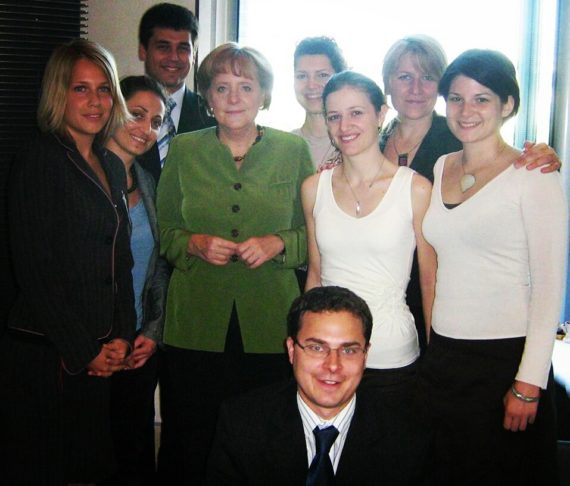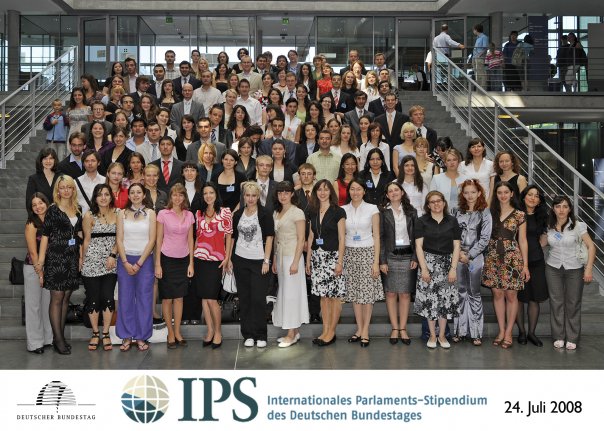Please find a list of European projects I have developed, cooperated with or for which I provided training and consultancy on media & diversity & European issues.
Hier finden Sie eine Reihe von Europäischen Projekten, die ich mitentwickelt habe oder bei welchen ich im Bereich Medien, Diversity und beim Thema Europa Expertise geleistet habe.
Div-A
I conceived, designed and developed the new media mentoring programme Diversity Accelerator for the Council of Europe. Its aim is to include diversity in media by exchanging ideas among journalist entrepreneurs on alternative resources of income such as crowdfunding and creating long-term business solutions, such as the membership model. Designing Div-A, I was deeply inspired by the American media scholar Henry Jenkins and his work on transmedia, crossmedia and multimedia storytelling.
Div-A Call for Applications: in 20 seconds
We're looking for journalists who want to create their own #multimedia platform and are committed to the #inclusion of #diversity in #media reporting. We're offering you a 6-month mentoring programme with a cool mentoring team, trainings at Lisbon and Perugia and a 3000€ fee awarded by the Council of Europe to selected projects that complete the mentoring programme and comply with its specific obligations. www.div-a.org
Posted by Div-A on Montag, 27. Juni 2016
7 weeks left to apply for Div-A
Journalists with original ideas! Want more #diversity and #inclusion in media? Create your own #media #startup! Need help to plan a #crowdfunding? 7 weeks left to apply for the Council of Europe's #mentoring programme.
Posted by Div-A on Sonntag, 3. Juli 2016
Fighting Corruption: DIGIWHIST
I worked as a communications consultant for the Hertie School of Governance and developed the website content of DIGIWHIST – The Digital Whistleblower. Fiscal Transparency, Risk Assessment and Impact of Good Governance Policies Assessed, an EU Horizon 2020 anticorruption project and created video interviews with the key partners.
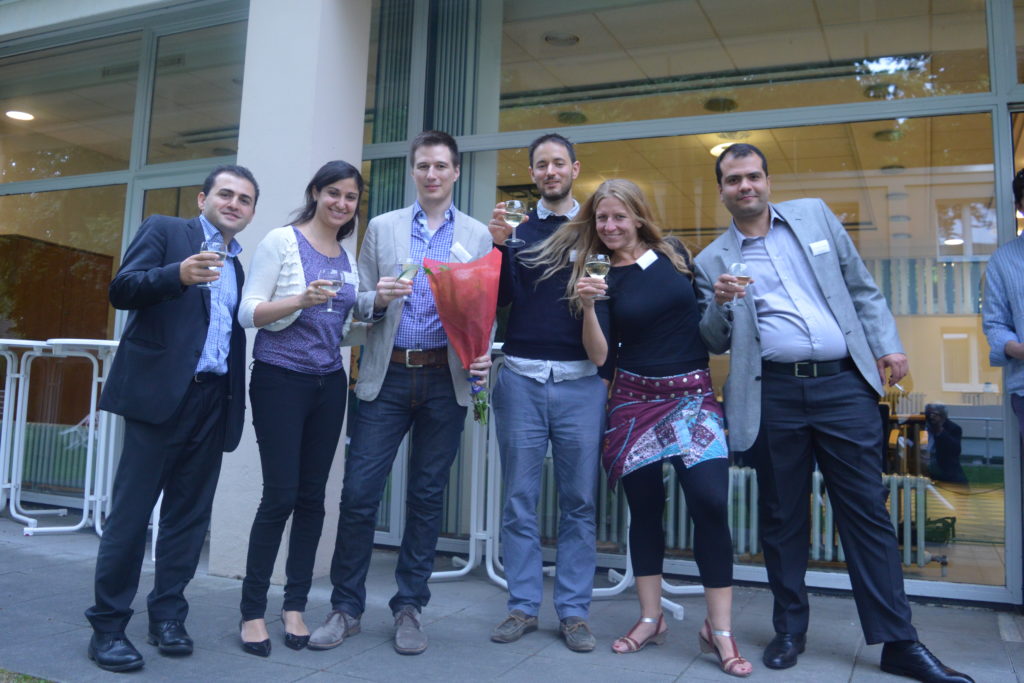
Europäische Akademie Berlin
Zusammenhalt in Krisenzeiten: Wie Europäisch sind die Europäer?
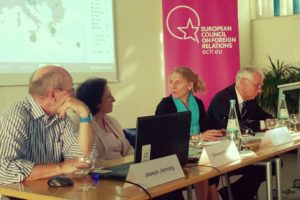
Gemeinsam mit dem European Council on Foreign Relations wurde am 8. Juni 2016 bei einem Expertengespräch der EU Cohesion Monitor vorgestellt und die Ergebnisse der Studie diskutiert. Besonders richtete sich dabei der Blick auf die Ostmitteleuropäischen EU-Staaten.
Konstanzer Kontroversen – Albtraum Europa?
Während des Konstanzer Konzils 1414 bis 1418 wurden gesellschaftliche und theologische Fragen erörtert. Die Konstanzer Kontroversen greifen Brennpunktthemen von heute auf und diskutieren sie an historischer Stätte mit prominenten Gästen. Am 18.11.2014 wurde im Konzilgebäude unter der Leitung von Meinhard Schmidt-Degenhard (ARD) über die Zukunft Europas diskutiert. Nachklang in der Presse: SÜDKURIER NR. 267, SÜDKURIER NR. 268
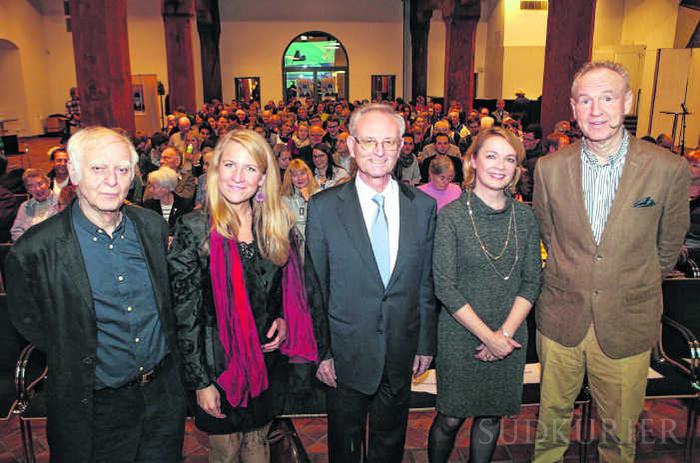
Zwischen den Zeilen
Podiumsgespräch zum Abschluss der Ausstellung
Medien zwischen Macht und Misstrauen I 18.3.2016 I Ludwigsburg
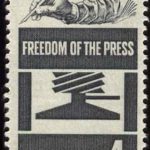
Zum Abschluss der Ausstellung “Zwischen den Zeilen – Zeitungspresse als NS-Machtinstrument” diskutieren Silke Lorenz, Leiterin der Ludwigsburger Redaktion der Stuttgarter Zeitung, Ulrike Trampus, Chefredakteurin der Ludwigsburger Kreiszeitung, die Publizistin Anna Frenyo, gebürtige Ungarin mit Wohnung und Büro in Berlin und Budapest, und Professor Dr. Jürgen Wilke, emeritierter Professor für Publizistik an der Johannes-Gutenberg-Universität Mainz, über die Arbeit der Medien heute. Die Moderation übernimmt der Journalist Rainer Nübel.
MARS & Mediane
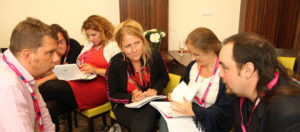 I was introduced to the EU/Council of Europe programme Media Against Racism in Sport by German diversity trainer Pari Niemann at the Berlin encounter in 2012. Invited to Budapest in September to help out with the international encounter of journalists there, I was asked to be a mentor at the Bordeaux meeting in November 2012 and led a group creating pieces connected to racism in sports.
I was introduced to the EU/Council of Europe programme Media Against Racism in Sport by German diversity trainer Pari Niemann at the Berlin encounter in 2012. Invited to Budapest in September to help out with the international encounter of journalists there, I was asked to be a mentor at the Bordeaux meeting in November 2012 and led a group creating pieces connected to racism in sports.
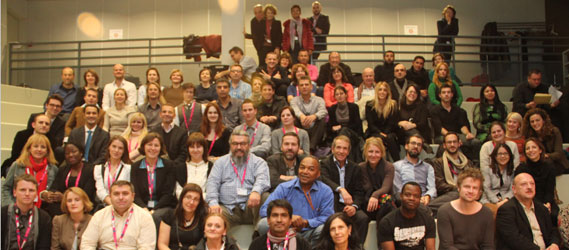
I was responsible for monitoring European Journalist Exchanges within the joint EU/Council of Europe programme Media in Europe for Diversity Inclusiveness, developed by media & diversity expert Reynald Blion and a team of international media professionals. With the exchanges we helped European journalists learn good practices of diversity inclusion from each other. See the videos that were produced.
What it was like to work with journalists on diversity? Watch at 03:12 in this video:
Further news reports on Mediane
Language Training
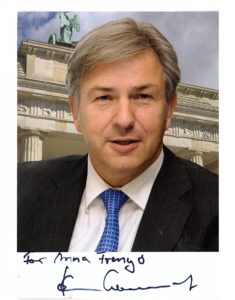
I have been teaching English communication skills at the Bundestag, the Berlin Senate, companies in Budapest and Berlin, the Berliner Volkshochschule and Parisian municipalities.
Diversity Training
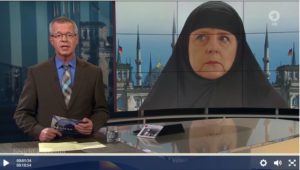 Within the framework of an EU&Erasmus+ funded programme of the German-Polish Kreisau Initiative, I trained young European journalists, including newly arrived Syrian refugees, on how to report on the issues of migration with respect and how to avoid spreading fake news.
Within the framework of an EU&Erasmus+ funded programme of the German-Polish Kreisau Initiative, I trained young European journalists, including newly arrived Syrian refugees, on how to report on the issues of migration with respect and how to avoid spreading fake news.
Sharing Good Practices
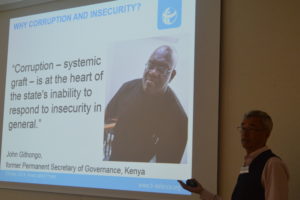 I covered the conference “Understanding Governance Virtuous Circles. Who succeeded and why” at the European Academy in Berlin, part of the EU FP7 research project ANTICORRP: Anticorruption Policies Revisited: Global Trends and European Responses to the Challenge of Corruption. ERCAS‘s researchers have identified seven countries (Uruguay, Estonia, Chile, Costa Rica, Taiwan, South Korea and Georgia) as the most successful in achieving control of corruption in the past 25 years. My interview partners addressed why and how these countries have been successful and what lessons can be learned from them. Prof. Michael Johnston, Prof. Robert Klitgaard, Prof. Larry Diamond
I covered the conference “Understanding Governance Virtuous Circles. Who succeeded and why” at the European Academy in Berlin, part of the EU FP7 research project ANTICORRP: Anticorruption Policies Revisited: Global Trends and European Responses to the Challenge of Corruption. ERCAS‘s researchers have identified seven countries (Uruguay, Estonia, Chile, Costa Rica, Taiwan, South Korea and Georgia) as the most successful in achieving control of corruption in the past 25 years. My interview partners addressed why and how these countries have been successful and what lessons can be learned from them. Prof. Michael Johnston, Prof. Robert Klitgaard, Prof. Larry Diamond
Internationales Parlamentsstipendium
